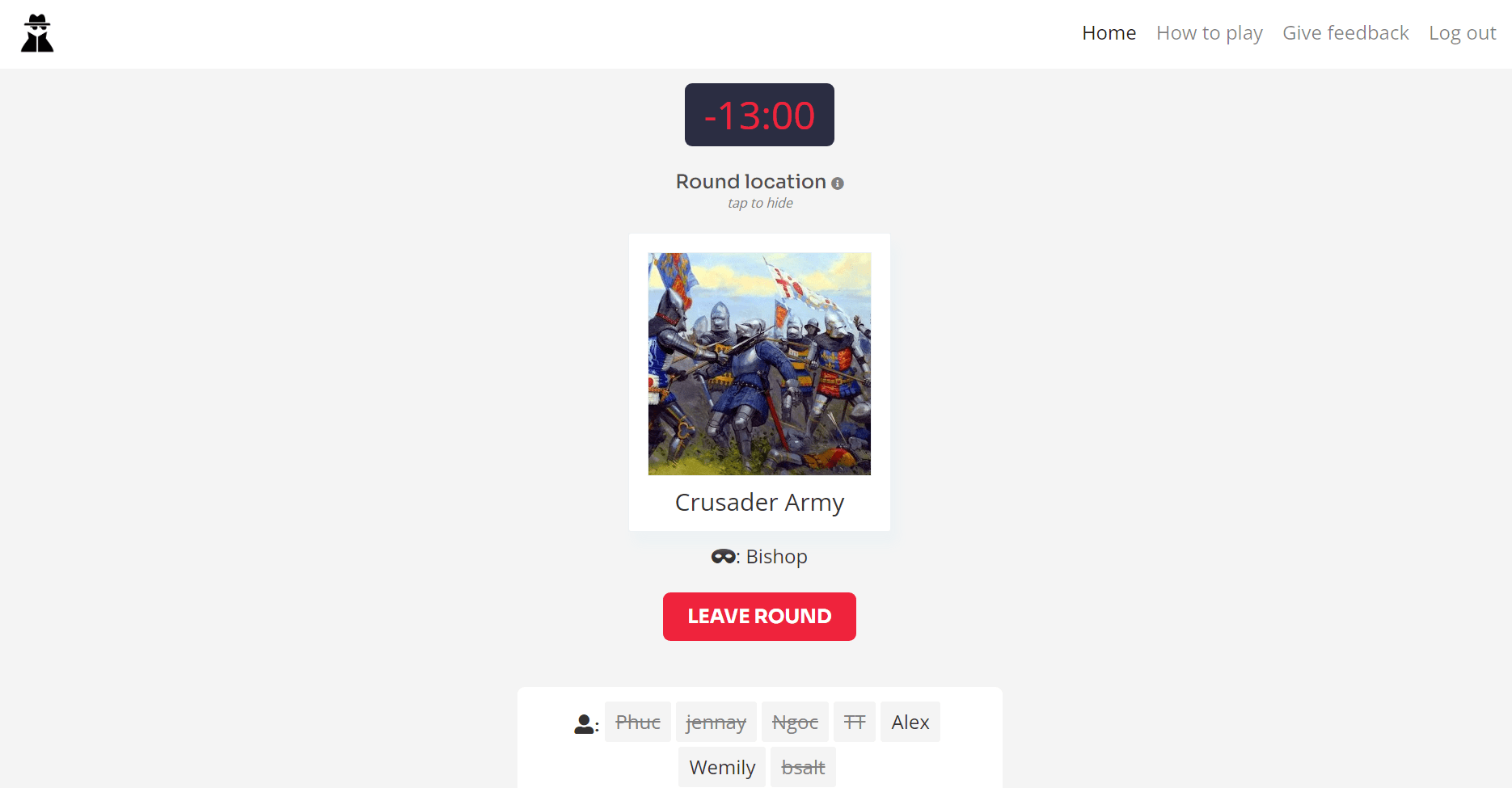There’s no James Bond to be found here. Spyfall is a game by Alexandr Ushan which is published by Hobby World. It’s a social deduction game and is targeted towards groups of friends who can’t play in person together. In short, it’s unilateral with one adversary trying to guess a location that all non-adversaries can see–but they themselves cannot. Non-adversaries are simultaneously trying to figure out who the adversary is without giving away the location. Information gathering is done via questioning in a group setting. So what makes this game unique and captivating compared to others in its genre?
Spyfall twists the classic genre with two main mechanics driving the game being made visible simultaneously and continuously: player-to-player interactions and knowledge. Typically, knowledge is scarce in the social deduction genre–yet alone easily verifiable between players. In many variations, player actions are often concealed or meant to be concealed. To corroborate this idea, let’s take a look at three recent (or timeless) popular games in the genre: Mafia, Among Us, and Push the Button.
- Mafia
- Players must close their eyes at night to conceal their actions. Thus, actions between non-adversaries is not visible nor easily verifiable.
- Knowledge is gathered at night and only sharable during the day by choice assuming the person gathering information lives. Revealing places risk on the revealer. Thus, knowledge is not visible nor easily verifiable.
- As more people are voted out or killed, deduction generally becomes easier as there is a smaller pool to draw from (and in theory, investigate assuming the person in that role is alive). It becomes a numbers game at some point.
- Among Us
- Players are completely autonomous and can act as they please however and whenever. They are also usually spread out. Depending on settings, whether or not an action occurs for non-adversaries may not be easily verifiable. Even if the settings are on, actions aren’t jointly verifiable due to locality.
- Knowledge is gathered only when: an adversary makes a mistake, someone is killed, or (depending on settings) specific tasks give visual cues. In every case–the knowledge gathered is local. Assuming players aren’t all sticking together (as they all have separate tasks), knowledge is therefore not easily verifiable.
- As time elapses, non-adversarial victory chances rise as they can win without deductions being made. There are also greater opportunities for deduction as players lessen which lends itself towards statistical advantage (though that may not be the exact case).
- Push the Button
- Players do not get a choice in action if they are non-adversarial. With that in mind, a player’s opportunity to prove themselves can be tampered with which is not verifiable.
- Knowledge is visible as all answers and drawings given are visible to everyone. Tampering severely impacts non-adversaries. This blurs the lines between adversaries and non-adversaries, but can only be done a limited number of times. Thus, knowledge is visible, but only semi-verifiable.
- The limited amount of tampering and access to more rigid tests as time elapses makes deduction easier.
In Spyfall, however,
- Players ask and answer questions out loud to one another for everyone to hear. Each action is visibly (or rather, audibly) verifiable.
- Knowledge and answers from questions are gathered in the aforementioned group setting, making all information between players visible and verifiable. Choice of question and answer are vital as they cannot hide.
- Adversaries can guess a location to immediately win and gain points. As time goes on, the adversary can generally paint a better picture as to what location is being discussed and deduction becomes harder as they can feign more easily (given more knowledge).
Since every tidbit of information is shared and verifiable, Spyfall in turn promotes a novel challenge in trying to deduce adversaries when everyone is working with the same facts. Successful feigns and reads by adversaries make their innocence feel much more defensible whereas a difficult-to-answer question or poor answer by a non-adversary can just as easily make them indefensible. The fundamental changes to how players are forced to interact with one another and the joint base of knowledge fundamentally changes the designed conflict from “who do we [the non-adversaries] truly know?” to “what do they [the adversary] not know, and how can we quickly and surreptitiously make them slip up?”.
The game is quite genius but doesn’t fix a major flaw that many social deduction games have: the game can end immediately. If a non-adversary quizzes the adversary on the first turn with a well-chosen question, the game is more than likely over. There is no working knowledge base to go off of and thus, the adversary must guess. This comes down to blind luck, which can be frustrating. Nevertheless, Spyfall stands as unique amongst its peers by reversing the flow of the genre’s expectations.



